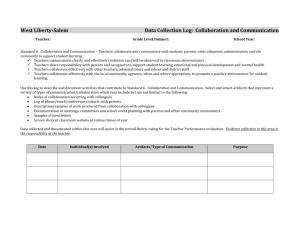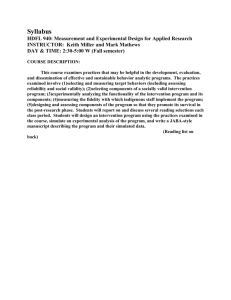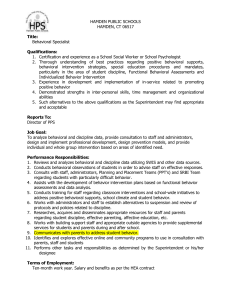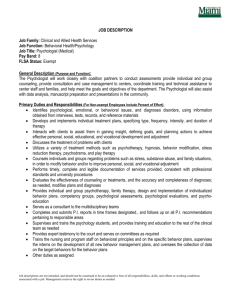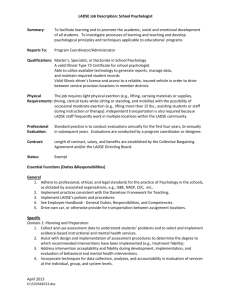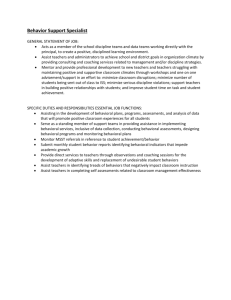Role of School Psychologist
advertisement
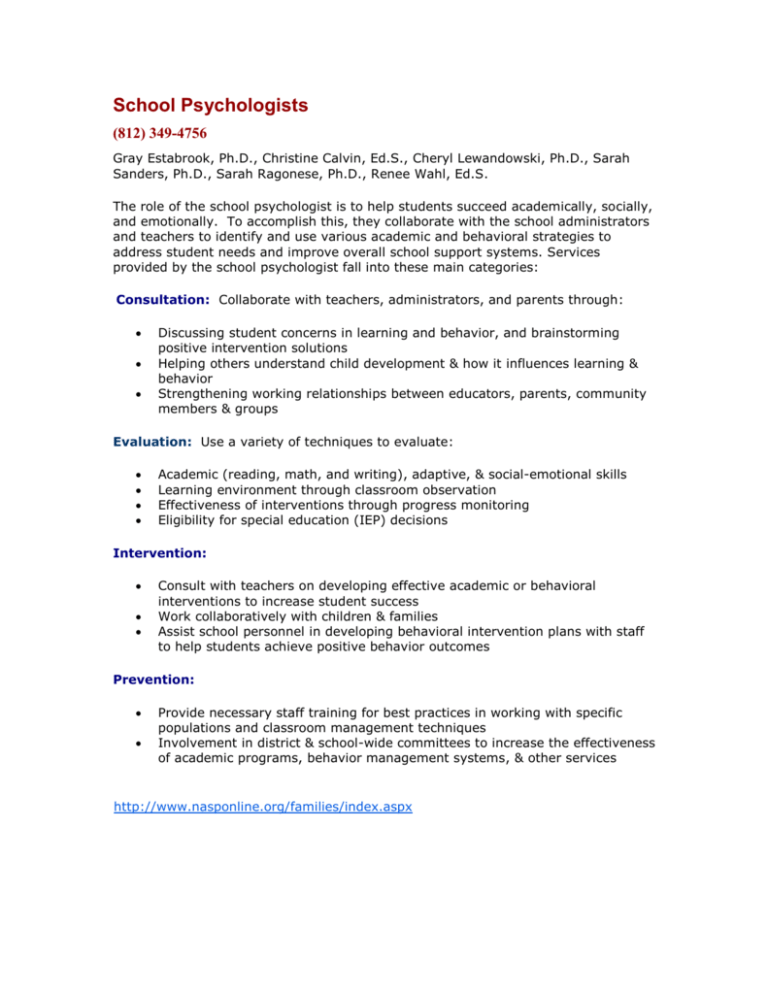
School Psychologists (812) 349-4756 Gray Estabrook, Ph.D., Christine Calvin, Ed.S., Cheryl Lewandowski, Ph.D., Sarah Sanders, Ph.D., Sarah Ragonese, Ph.D., Renee Wahl, Ed.S. The role of the school psychologist is to help students succeed academically, socially, and emotionally. To accomplish this, they collaborate with the school administrators and teachers to identify and use various academic and behavioral strategies to address student needs and improve overall school support systems. Services provided by the school psychologist fall into these main categories: Consultation: Collaborate with teachers, administrators, and parents through: Discussing student concerns in learning and behavior, and brainstorming positive intervention solutions Helping others understand child development & how it influences learning & behavior Strengthening working relationships between educators, parents, community members & groups Evaluation: Use a variety of techniques to evaluate: Academic (reading, math, and writing), adaptive, & social-emotional skills Learning environment through classroom observation Effectiveness of interventions through progress monitoring Eligibility for special education (IEP) decisions Intervention: Consult with teachers on developing effective academic or behavioral interventions to increase student success Work collaboratively with children & families Assist school personnel in developing behavioral intervention plans with staff to help students achieve positive behavior outcomes Prevention: Provide necessary staff training for best practices in working with specific populations and classroom management techniques Involvement in district & school-wide committees to increase the effectiveness of academic programs, behavior management systems, & other services http://www.nasponline.org/families/index.aspx


